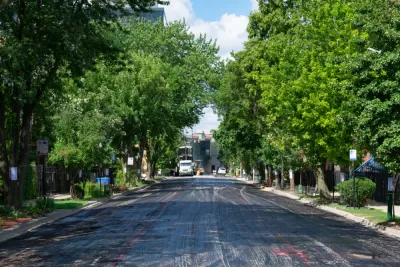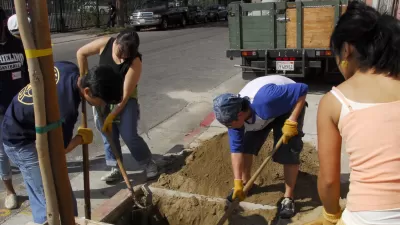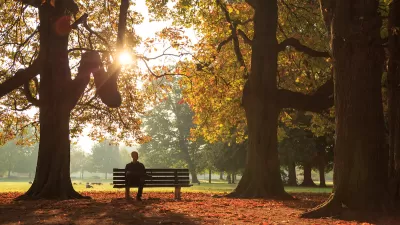An Urban Forestry Board is needed in Chicago to unsure the health and safety benefits of a flourishing urban forest.

Nara Schoenberg reported on August 14, 2020 about the devastating toll the recent derecho storm took on the urban tree canopy of Chicago.
"The Chicago region is still assessing the damage caused by a major storm Monday, but the city has received 4,000 emergency calls about tree damage, officials say, and the Forest Preserves of Cook County report that thousands of additional trees have been seriously damaged," according to Schoenberg.
Daniella Pereira, vice president for community conservation at Openlands, follows up that news with commentary calling on the city to establish an Urban Forestry Board to help the city recover and regenerate from that devastation.
Pereira notes that the city was already on pace to remove a record number trees before the storm hit: "Before the recent derecho storm, public records show removals neared 7,300 trees. Mayor Lori Lightfoot said the storm took out that same number of trees in one afternoon. That’s a total of 14,600 trees lost in 2020, with 4½ months to go." The city is now in the 11th consecutive year of removing more trees than it plants, according to Pereira.
As a solution, Pereira recommends the creation of an Urban Forestry Board tasked with "advancing better policies and practices to care for trees and coordinating city agencies that can impact the health of trees."
"It would also identify opportunities to supplement public with private funds by better coordinating efforts with nongovernment partners and volunteers that work with trees," writes Pereira.
Pereira also devotes substantial space to making the case for the benefits of trees in urban settings.
FULL STORY: Commentary: 7,300 trees lost in the storm: Just one reason Chicago needs an urban forestry board

Maui's Vacation Rental Debate Turns Ugly
Verbal attacks, misinformation campaigns and fistfights plague a high-stakes debate to convert thousands of vacation rentals into long-term housing.

Planetizen Federal Action Tracker
A weekly monitor of how Trump’s orders and actions are impacting planners and planning in America.

In Urban Planning, AI Prompting Could be the New Design Thinking
Creativity has long been key to great urban design. What if we see AI as our new creative partner?

King County Supportive Housing Program Offers Hope for Unhoused Residents
The county is taking a ‘Housing First’ approach that prioritizes getting people into housing, then offering wraparound supportive services.

Researchers Use AI to Get Clearer Picture of US Housing
Analysts are using artificial intelligence to supercharge their research by allowing them to comb through data faster. Though these AI tools can be error prone, they save time and housing researchers are optimistic about the future.

Making Shared Micromobility More Inclusive
Cities and shared mobility system operators can do more to include people with disabilities in planning and operations, per a new report.
Urban Design for Planners 1: Software Tools
This six-course series explores essential urban design concepts using open source software and equips planners with the tools they need to participate fully in the urban design process.
Planning for Universal Design
Learn the tools for implementing Universal Design in planning regulations.
planning NEXT
Appalachian Highlands Housing Partners
Mpact (founded as Rail~Volution)
City of Camden Redevelopment Agency
City of Astoria
City of Portland
City of Laramie





























